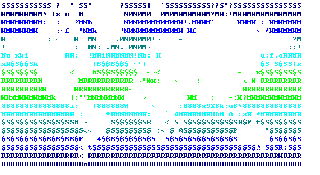 Networked Information in an International Context
Networked Information in an International Context Networked Information in an International Context
Networked Information in an International ContextA CONFERENCE ORGANISED BY UKOLN IN ASSOCIATION WITH
THE BRITISH LIBRARY, CNI, CAUSE AND JISC
9th and 10th February 1996 at the Ramada Hotel, Heathrow, UK
This account was drafted for this report by The Marc Fresko Consultancy. It is based on notes taken during the presentation and slides used.
Despite the growth of the WWW, despite its ease of use and despite the proliferation of search tools, there is still a need for human intervention to guide the search process by adding judgmental information. SOSIG is the first of a series of subject-based gateways under construction in the UK. SOSIG has been running for 18 months and is piloting an approach to classification and description which allows the information to reside at appropriate centres of expertise. This expertise will be made available to user in a transparent and distributed way.
Until about two years ago, we had to put up with a variety of complex interfaces for Internet services. Not only were interfaces inconsistent, but addresses were constantly changing. We had Gophers galore - frequently highly nested ó and the X.25 communications, incompatible with direct Internet use, which the UK academic community was using.
Typically, users went through three phases of network awareness. First, before network training, "machine-phobia", as they were sceptical of the use of the Internet. Then, b after their initial training, came a period of "network-o-philia" as they became excited by the possibilities of Internet research. Sadly, the third phase, "getting lost" followed soon after as the degree of difficulty of locating resources became apparent, the enthusiasm being lost in proportion.
This gave rise to the concept of the "subject gateway", being a meta-resource which provides links to data resources in a particular domain, in an organised manner.
Todayís hyper-linked WWW network cuts through the hierarchical nests which proved so confusing. WWW is pervasive, as is its use. It is increasingly populated with a variety of search engines and "robots" which make searching easier. And for those who are still struggling. there are many "idiotís guides" available to help. It would therefore be understandable to question the need for further subject gateways.
Despite the advances of the WWW, searching the Internet is still problematic. The search tools which exist are still primitive; for example, they often return large numbers of "hits" in response to search enquiries. In practice, serendipity and browsing are insufficient, even augmented by todayís tools. There is still a need for human selection and expertise to assist the search process; and that is precisely what a subject gateway offers.
SOSIG - the Social Science Information Gateway - (pronounced "sausage") is designed to be the first stop for Social Scientists on the Internet. Its key attributes are to provide a consistent interface, and to deal with information issues which include:
The resources linked by the gateway include mailing lists, newsgroups, printed guides and catalogues, and networked search tools. The resources included have been "filtered" in accordance with a developed policy. This policy is qualitative, emphasising the value added by human involvement in the maintenance of the gateway. The aim is to make the gateway comprehensive for UK resources.
Resources are classified according to their UDC (Universal Decimal Classification) code, with some cross-referencing. The lists can be viewed in alphabetical order or by UDC (users almost always choose the former, which is the default).
Each resource identified in SOSIG is described in one record. The records, based on IAFA templates, describing a resource in the SOSIG gateway include:
The descriptions clearly are central to the success of the enterprise. Some are contributed by owners of the resources, others are developed by the SOSIG team.
These records underlie the search facility, and automatically create the browsable classified collection.
SOSIG has been used in practice to answer an impressive range of questions and enquiries. Some real life examples include:
The main ongoing effort is to make SOSIG a test site for the ROADS system [1]. There are also efforts under way to encourage the creation and recording of new Social Sciences resources, including non-networked resources.
The project team strongly believes in remembering that "Itís the data, stupid" - in other words, we must remember that the information is prime, not the technology. It is also essential to avoid being tied to particular standards, protocols or technologies - they change too often.
The amount of effort expended on maintaining the gateway is large, especially so given the breadth of the subject covered. This is giving rise to some concerns, and we are proposing to devolve some of the work to subject experts. Finally, there is the inevitable question of funding. Present funding is provided by the eLib programme; but this is finite. The source of funds for continued operation will have to be determined.
SOSIG can be accessed at URL: http://sosig.ac.uk or use telnet to sosig.ac.uk with login sosig
[1]See the presentation on ROADS by L. Dempsey in this volume.
British Library R&D Report 6250
© The British Library Board 1996
© Joint Information Systems Committee of the Higher Education Funding
Bodies 1996
The opinions expressed in this report are those of the contributors and not necessarily those of the sponsoring organisations.
RDD/C/187
The primary publication medium for this report is via the Internet at URL
http://www.ukoln.ac.uk/services/papers/bl/rdr6250/
It may also be purchased as photocopies or microfiche from
the British Thesis Service, British Library Document Supply Centre,
Boston Spa, Wetherby, West Yorkshire, LS23 7BQ.
This report of the conference was prepared by The Marc Fresko Consultancy Telephone +44 181 645 0080 E-mail marc@easynet.co.uk
Converted to HTML by Isobel Stark of UKOLN, July 1996